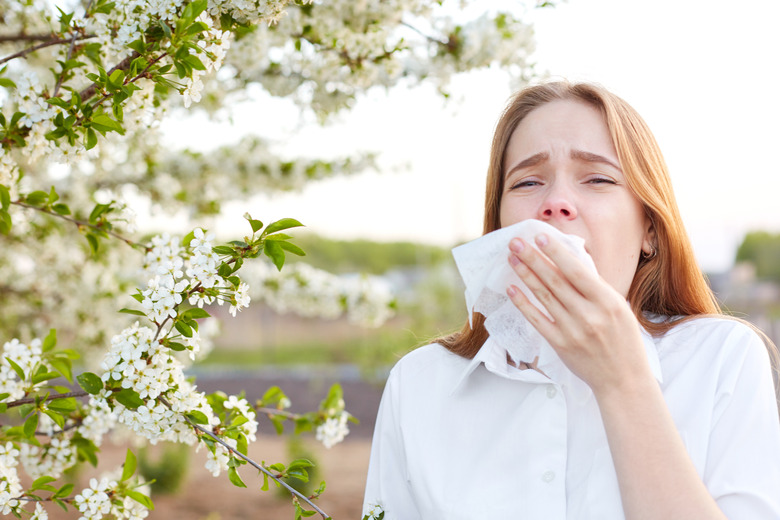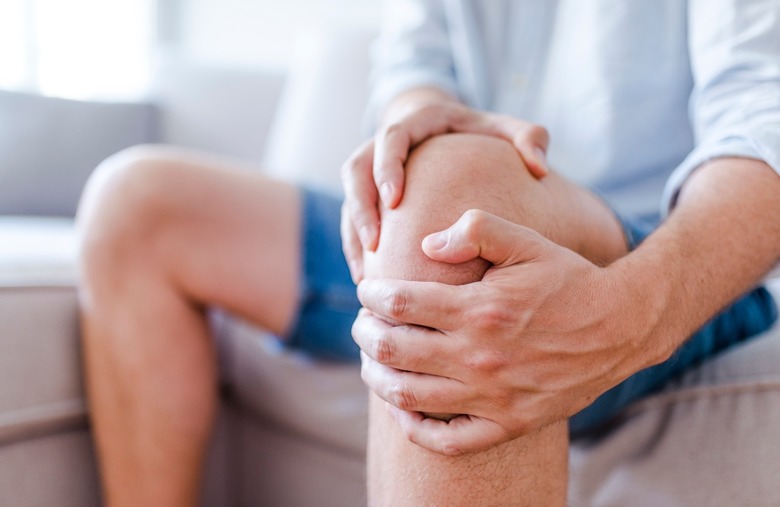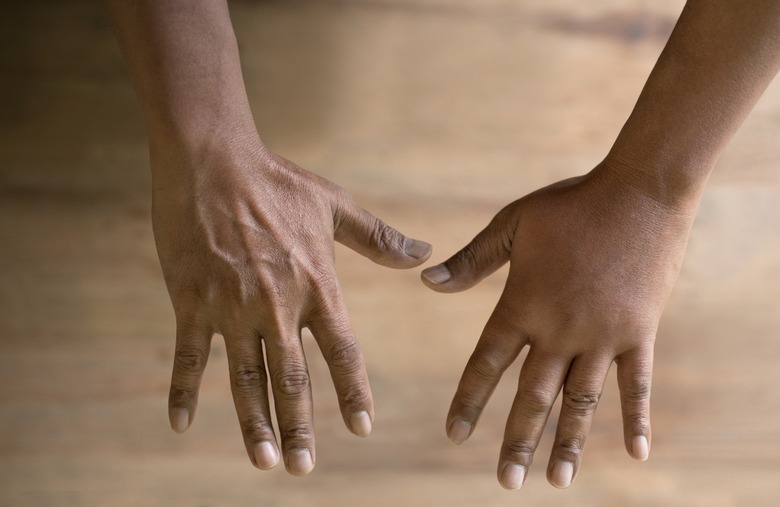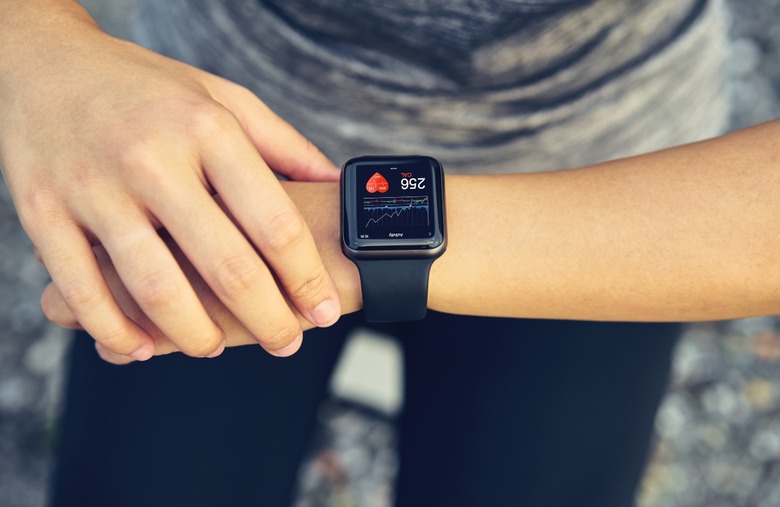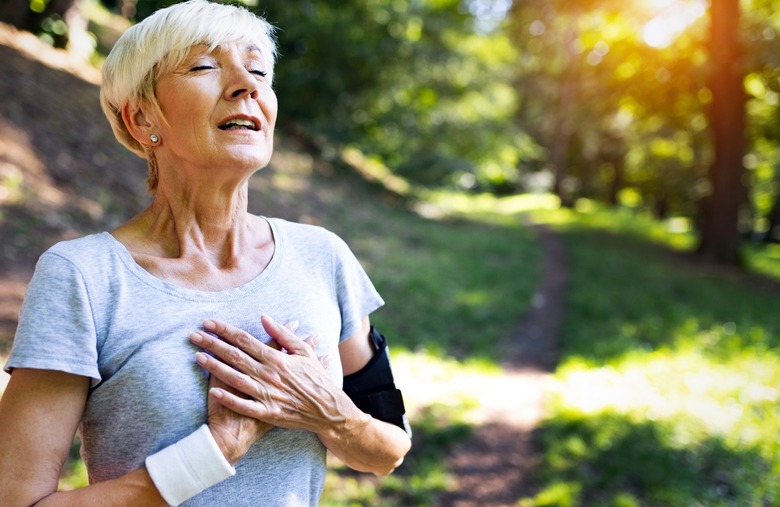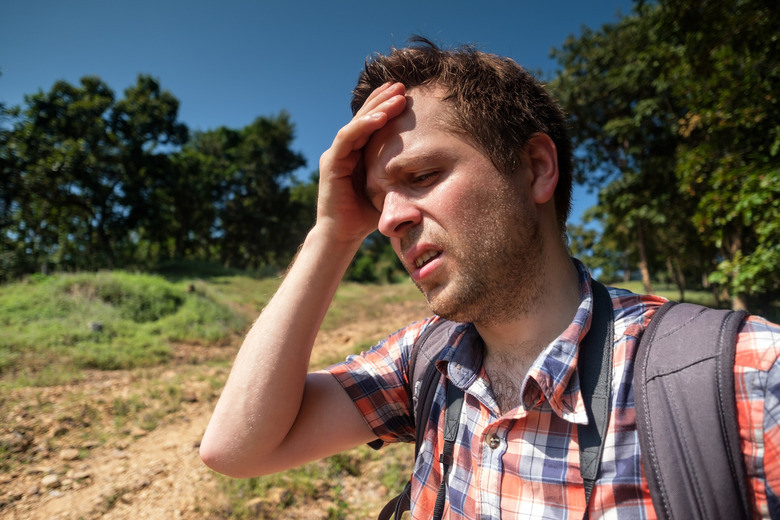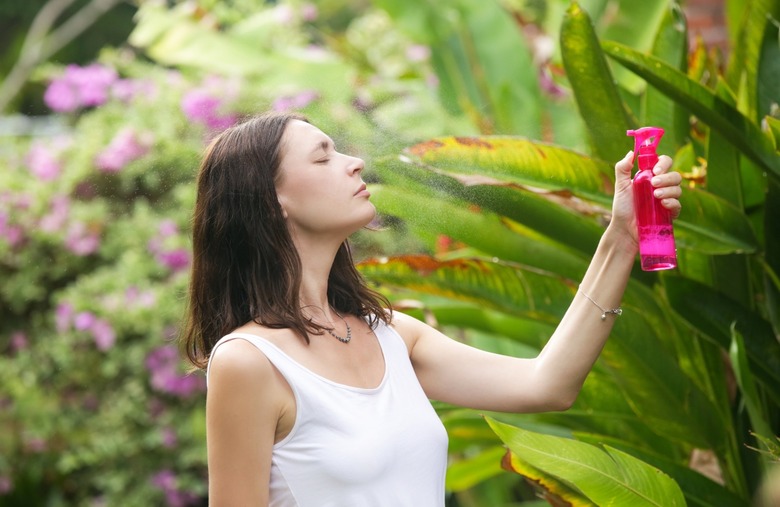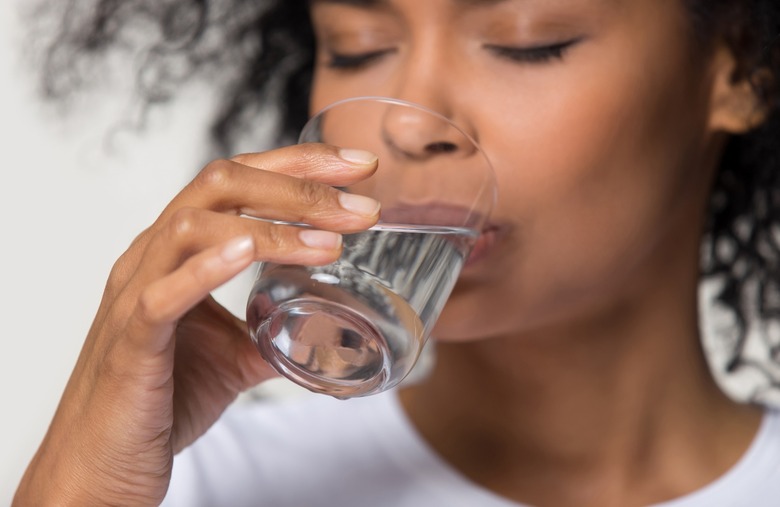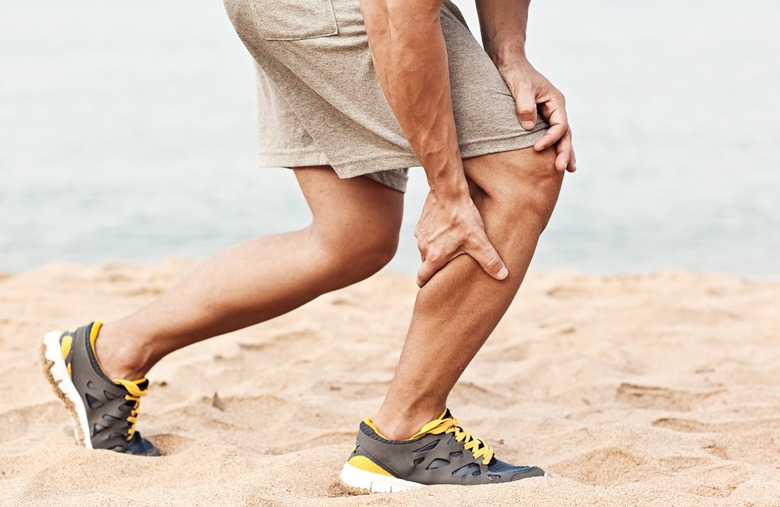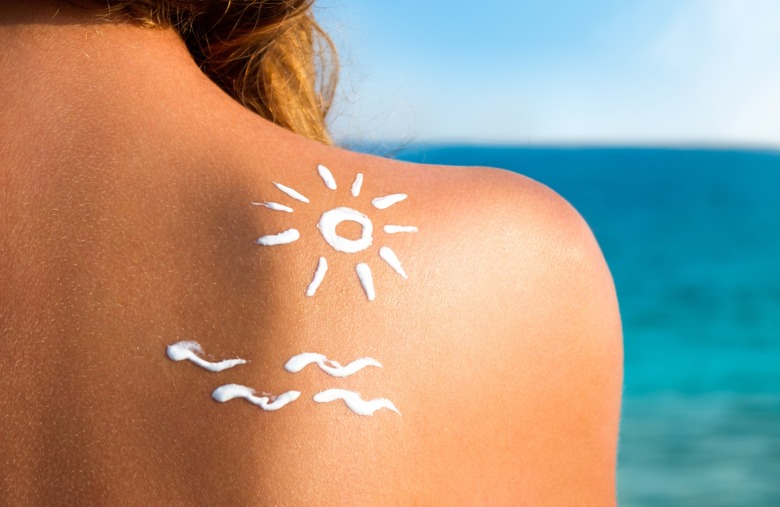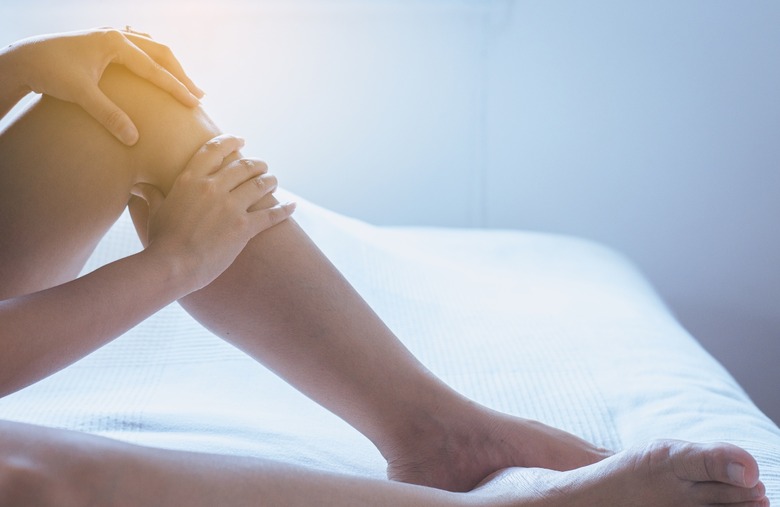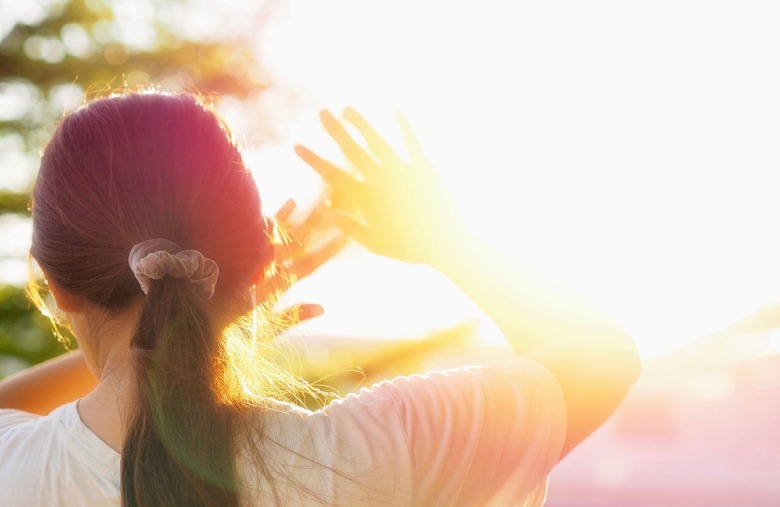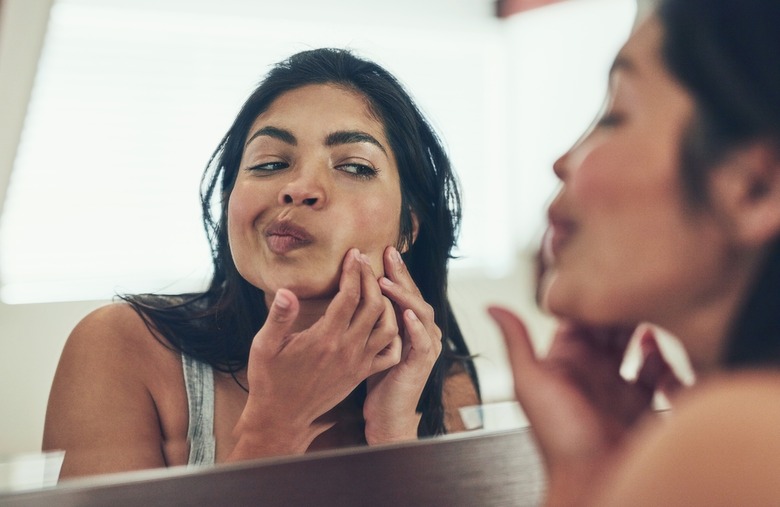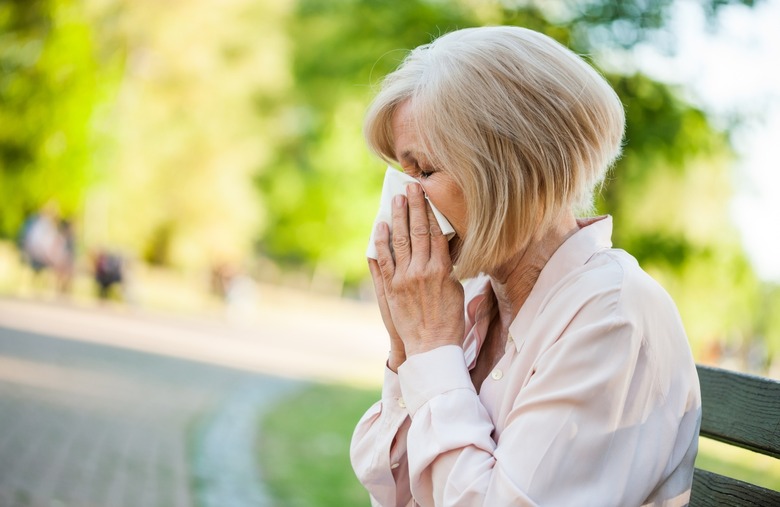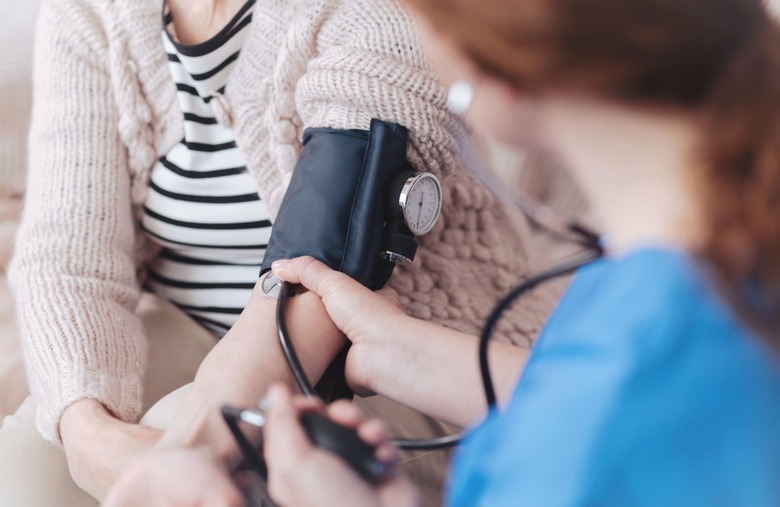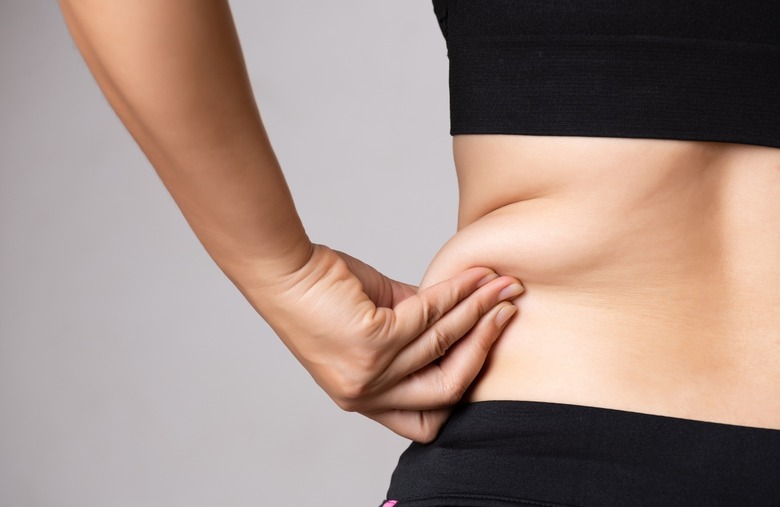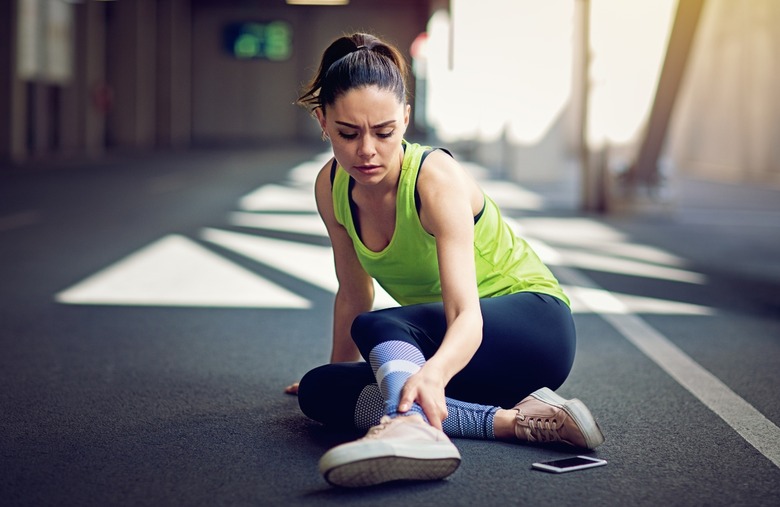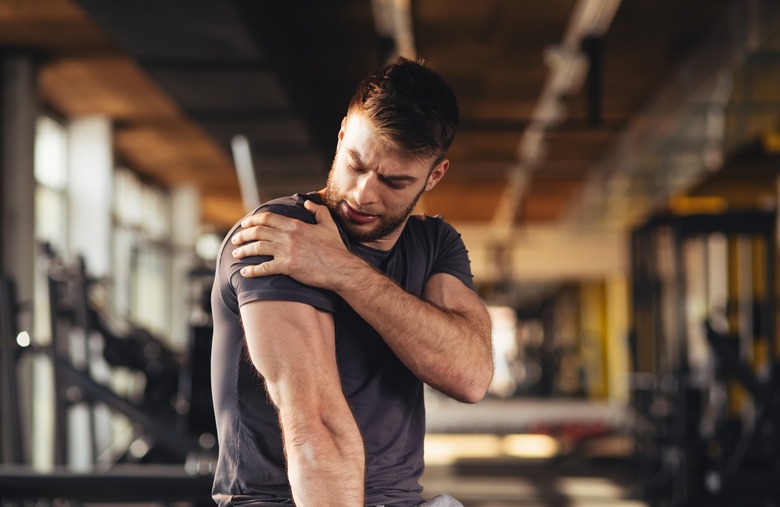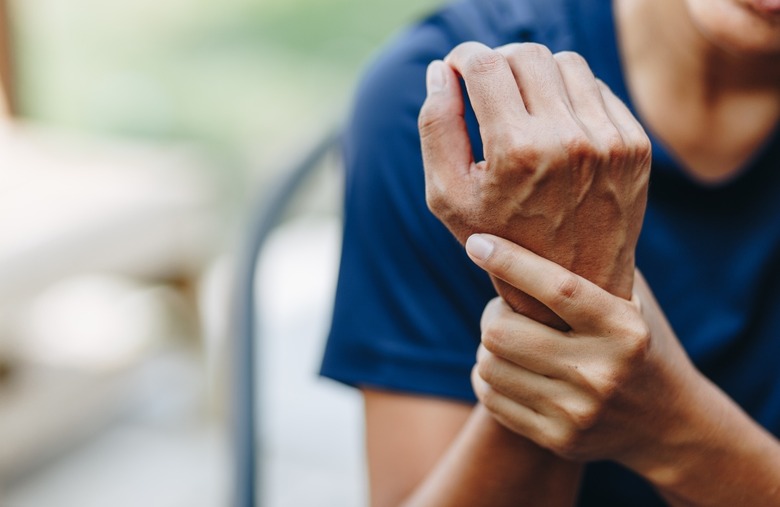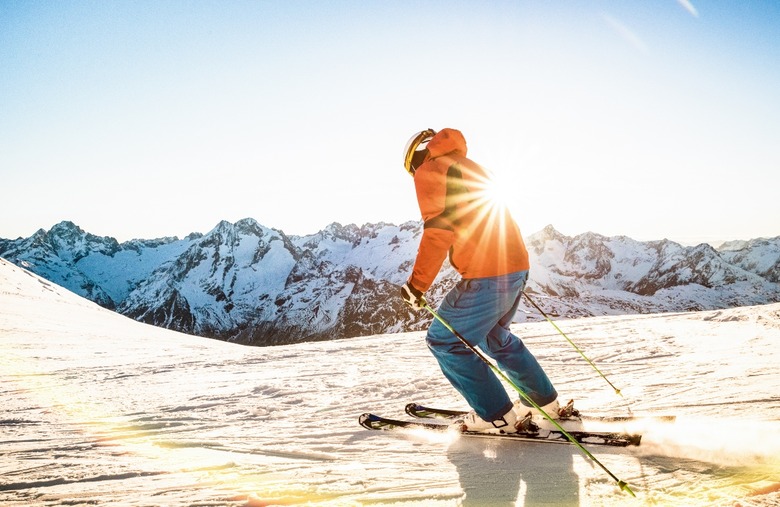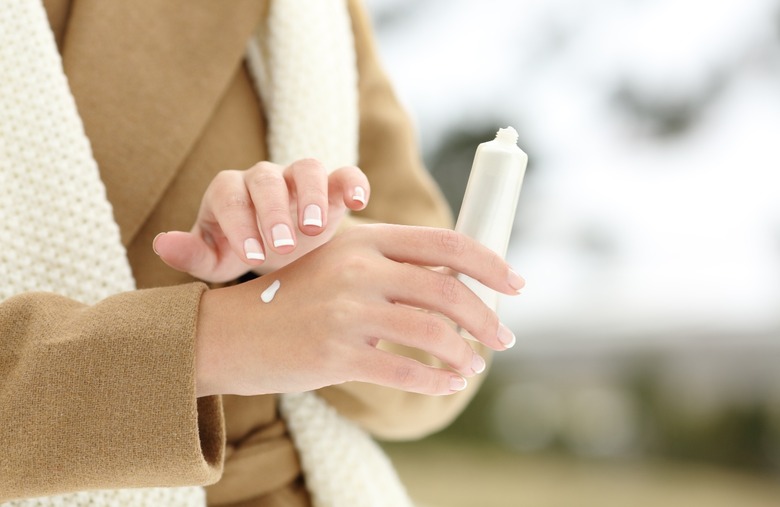Weird Ways The Seasons Affect Your Body
Changing seasons can mean a lot more than just needing to wear a jacket. Each change of the seasons can be exciting, laborious and even somewhat emotional. People often associate the seasons with their favorite holidays or the wistful passage of time. The transition from summer to fall, for instance, is a joy for some and a drag for others. It can mean temperature dips that ruin your summer vacation plans. It can mean gorgeous views of multicolored foliage and a decline in sunlight hours. It can mean breaking outdated fashion rules and wearing white after Labor Day.
No matter the season, changing over from one to the next takes its toll in many ways. In addition to the effects that seasons may have on your lifestyle, they can also really mess with your body.
Rain and storms can trigger migraines
When it rains, when it snows or when a big storm is approaching, barometric pressure can fluctuate. This change in pressure can trigger a migraine, according to studies. "Barometric pressure (and humidity) can change the pressure from the air to the sinus cavity," Dr. Amarish Davé, a board certified neurologist told The Active Times. "The pain receptors in the sinuses overlap with the pain receptors that impact migraine headaches. So a small change in barometric pressure can trigger headaches."
Stormy weather can make you more impulsive
Changes in barometric pressure can mess with your brain and your mood, according to the American Addiction Centers' chief medical officer Dr. Lawrence Weinstein. Low barometric pressure (that drop in air pressure you feel when it's about to storm) has been associated with more emergency psychiatric visits and violent incidents. Studies suggest that this is due to an uptick in impulsive behavior.
Storm season can cause joint pain
The cause of weather-related joint pain is something of a medical mystery. But orthopedic surgeon Dr. Geoffrey Van Thiel tells The Active Times says one potential explanation is barometric pressure. "Think of a balloon. If the air pressure around a balloon increases, the balloon will get smaller. If the air pressure around it gets lower, the balloon will get bigger." The same is true of your joints, he explains. "If the barometric pressure decreases, our joints and muscles expand. In someone that already has inflammation in a joint, this can result in pain." Since barometric pressure drops before a storm hits, those with joint pain may feel increasing levels of pain before rain, snow and natural disasters. So if you experience joint pain, it's especially unwise to visit one of these destinations you should never visit in the summer; they have some gnarly storm seasons.
Heat can make your feet and hands swell
Though it doesn't happen to everyone, many people will experience swelling of the hands and feet when it's hot out. This is called heat edema, and it occurs due to widening blood vessels in the body. This can cause blood to pool in your extremities. If this happens to you, don't freak out — it's probably not a big deal. But if you swell to the point of discomfort, don't ignore this symptom. It could be a sign of heat exhaustion.
Hot weather gets your heart racing
If you were sitting outside, stationary, doing absolutely nothing in both the summer and in the winter, your heart would beat faster in the summer. This is in part because of the effect warm weather has on your blood vessels. When your blood vessels are wider, your heart has to work more quickly to pump them with blood. Additionally, if you're dehydrated, your blood volume decreases. Lower blood volume combined with a larger area in your blood vessels to fill forces your heart to pick up the pace. So you'll actually experience a slight increase in heart rate as a result.
Hot weather causes breathing problems
The increased demand for blood to pump through your heart means that you'll also need more oxygen. As a result, some people find that they breathe heavier and more quickly in the summer months, explains Dr. Theresa Marko, doctor of physical therapy and board-certified clinical specialist in orthopedics, to The Active Times. This is especially risky for people with respiratory problems like COPD and bronchitis. According to a study from Johns Hopkins, emergency hospitalizations for respiratory diseases increase in hot weather.
Hot weather causes fatigue
While cold weather constricts the blood vessels, hot weather can make them wider. "Hot weather loosens our blood vessels, which can result in lower blood pressure," Lina Velikova, MD, Ph.D., a medical writer for MedAlertHelp.org, tells The Active Times. You might think that this is a good thing, but if your blood pressure dips too low, it can cause fatigue. If you find yourself feeling tired without explanation in the summertime, you might want to talk to your doctor about blood pressure issues.
Humidity can make it harder to cool down
In humid air, it's harder for your body to regulate temperature. This can make summer's heat seem even worse than it really is. "When the weather is hot with high humidity, you may not adjust well to the ambient temperature," Dr. Thomas Horowitz of CHA Hollywood Presbyterian Medical Center tells us. Sweat you perspire won't evaporate into the air as quickly, and since this is the cooling mechanism that makes sweating helpful, your internal body temperature may not cool down as quickly as it would in lower levels of humidity.
Summer puts you at risk for dehydration
This one might seem obvious, but there's a reason that you need to pay more attention to the amount of water you're drinking in the summer. It's important to stay hydrated year-round, but if you don't drink enough water in the summer you could be at risk for a more serious health issue. "Humidity combined with hot weather makes our body harder to regulate the temperature," Velikova says. Since it's harder for the body to cool off in humidity, you're prone to excessive sweating. This rids the body of more water than usual. "It may induce certain heat-related illnesses and discomforts, such as dehydration and in extreme situations, a heat stroke," Velikova says.
Humidity could cause muscle cramping
Since humidity makes you more prone to sweating and dehydration, you may also be at risk for muscle cramping, Horowitz explains. Muscle cramps are more likely to occur when you don't drink enough water. When it's humid out, make sure to drink more water than you would normally, especially if you're exercising or spending time outside.
Summer poses a higher risk of skin damage
"Sunlight in the summer has an increased amount of UV rays, which is detrimental to our skin and health," Velikova says. UV rays not only put you at risk for sunburn, but they also can increase your risk of skin cancer. UV rays hit even when it's not visibly sunny, which is why it's so important to wear sunscreen every day regardless of the weather. In summer, there are more hours of sunlight, and therefore more risk of exposure.
Sunlight boosts your energy levels
You might feel like you just have more energy in the summer. This isn't just in your head — it's biological. "Most people experience an increase in energy and mood levels as sunlight is increasing," Dr. Nikola Djordjevic, medical advisor for LoudCloudHealth.com, tells The Active Times. "The reason for this is the increased production of vitamin D3 in your body, which is actually produced by your body when it reacts with the ultraviolet rays of the sun." Djordjevic points out that the sunlight has to actually contact your skin directly to instigate vitamin D production. "While driving all day in the sun might give you a tan, your body won't produce vitamin D if the sun's ultraviolet rays have to pass through glass." Geographical location and the angle of the sun can also affect vitamin D production, Djordjevic says. If you experience any of these symptoms, try to spend more time outside — you may not be getting enough vitamin D.
Warm weather makes varicose veins worse
Varicose veins (also called spider veins) are large, twisted veins that become visible on the surface layer of the skin as dark blue or purple lines. They often occur on the legs due to increased vein pressure in your lower body. For most people they are solely a cosmetic concern and don't cause any pain or health risk, though some more severe cases may result in discomfort. "Varicose veins tend to worsen in warmer weather, and most patients report symptoms are aggravated in summer months," Nisha Bunke, venous disease specialist and medical director of La Jolla Vein Care, explains. "Varicose veins are worsened by warm weather because heat causes the leg veins to dilate (stretch) allowing more blood to pool. It's the pooling of blood that causes most symptoms."
Sunlight can damage your eyes
Your skin isn't the only part of your body you need to protect from summer's harsh sun. "It is especially important during the sunniest months of the year to protect your eyes from UV rays," Dr. Joshua Frenkel of Vold Vision tells us. "UV exposure from the sun has been correlated with formation of growths on the eye surface including pingecula and pterygium (surfer's eye), early cataract formation and macular degeneration." But the risks don't end there. "UV exposure to the skin around the eye can also lead to certain types of skin cancers which are much more difficult to treat due to the thinner, delicate skin in this area," Frenkel explains. The best way to prevent this damage from occurring is to wear sunglasses with adequate UV protection. "Ideal specifications would be 100 percent blocking of UVA and UVB light," Frenkel recommends. "All sunglasses sold in the U.S. should meet a minimum standard which is established by ANSI (American National Standards Institute)."
The sun can mess with your sleep
Getting enough sleep is really important, but this can be more difficult to do in summer. "Our circadian rhythm is influenced by natural light," Velikova explains. "When there is too much of it, like in the summer in the northern parts of the world, our body can produce less melatonin and more cortisol." Melatonin signals to your body that it's time to sleep, whereas cortisol is a stress hormone that can keep you awake. "This is why people who live far north need to use the blinds in the evening to mimic the night," Velikova says.
Summer can cause acne
Of all the things that can cause breakouts, summer might be the hardest to avoid. Hot weather is going to hit whether you like it or not, and its effects just might show up on your skin. "Transitioning from winter to summer will, because of the increasing humidity, lend itself to increased oiliness of the skin, which can result in problems such as increased acne," Dr. Kenneth Rothaus, a cosmetic surgeon, author and skin and hair expert, tells The Active Times. Those with clear skin in the winter might experience summertime breakouts. As a result, Rothaus recommends taking a seasonal approach to skincare. "For example, you might use oil-free products incorporating UV blockers in the summer," Rothaus says.
Warm weather can make you more creative
Taking walks outside on a nice, temperate day can have a few unexpected effects on your life, one of which is a boost to your creativity. Studies have linked spending time in warm, nice weather with an increase in creativity and artistic expression. So if you're hitting a writer's block or feeling uninspired, try spending some time outdoors if the season is right for it.
Allergies can shift with the seasons
Depending on what you're allergic to, some seasons can result in worse allergies than others. "In the fall, the top allergens are ragweed, mold, mildew and dust mites," optometrist Nathan Rock explains. In spring and summer, allergies are mostly caused by pollen circulating through the air. "These allergens get into the eyes and, for many, cause an allergic response," Rock says. The symptoms of atmospheric allergies, such as those from mold exposure, vary from person to person, but common symptoms include eye watering, redness and itching. "Often, patients will rub the eyes to attempt to alleviate the itch, but this is counterproductive as this causes cells release more histamine," Rock says. "While it feels good for a few seconds, eye rubbing leads to more itching, redness and watering."
You get hungrier in the winter
For whatever reason, whether it's physiological or mental, you're likely to want to eat more in the winter. Research from the University of Exeter shows that people experience subconscious urges to eat more than they normally would in the wintertime. So maybe that's why you ate all that holiday pie...
Winter boosts your metabolism
Since studies show that the average person gains a few pounds in winter, you might think that a slower metabolism is to blame. But in actuality, your metabolism speeds up during winter, perhaps in an effort to keep your body warm. Research published in the journal Trends in Endocrinology and Metabolism shows that the average person's metabolism gets a slight boost when it's cold outside in winter months.
Cold weather increases blood pressure
You might have known that blood pressure can be affected by lifestyle habits and diet, but did you know the seasons can mess with your blood pressure readings, as well? "Cold weather constricts our blood vessels, which can lead to higher blood pressure," says Velikova. "This is because your heart needs to work harder to pump the blood." To reduce your risk of high blood pressure, consider making these healthy diet changes.
Cold weather increases your risk of a heart attack
The effect of cold weather on your blood pressure can be caustic. Studies show that heart attack rates spike during the winter months, largely due to the effect of cold weather on blood vessels and hypertension. To reduce your heart risk, cardiologists recommend taking these steps.
You’re more likely to get sick when the air is cold and dry
"Changes in weather can influence your immune system," explains Velikova. "Viruses such as influenza thrive in the cold and dry air." There's a reason flu shots are administered most often in fall. When winter strikes, this can increase the presence of viruses in your surroundings, causing you to be more likely to get sick. If you struggle with cold and flu season, here are some tips for avoiding illness from people who never get sick.
You may experience seasonal affective disorder
Seasonal affective disorder (SAD) is a mental health disorder characterized by depression that typically occurs at a particular time of year. A common health myth is that SAD can only occur in the winter. But SAD doesn't just hit in winter when it's cold and dark — some people experience SAD during the summer months, and it can occur during any season. "It typically affects females more than males and makes you feel moody, irritable and/or anxious, lowers your energy levels, makes it difficult to wake up in the morning and give you trouble concentrating on tasks," Carolyn Dean, MD, ND, a naturopathic doctor and founder of RNA Reset, tells The Active Times. There are more than 3 million cases of SAD each year in the U.S. If you think you may be affected, consult a mental health professional for diagnosis and treatment. And if a loved one is affected, keep in mind these tips for helping a loved one struggling with depression.
Cold weather could cause you to generate different types of fat
Studies suggest that temperature affects the way your body produces new fat cells. There are two groups of fats: white fat and brown fat. It's thought that brown fat produces heat when it's cold out in order to keep you warm, and that the body burns energy from these fat cells more efficiently (in other words, burns more calories). When it's cold out, your body may be inclined to generate more brown fat than white fat.
Cold weather can increase your risk of injury while exercising
In cold temperatures, muscles lose more heat and will contract. You may also find that you have less mobility during exercise and feel stiff. "In the cold our blood doesn't circulate as well, and our muscles have greater difficulty contracting and relaxing," Dr. Theresa Marko, a board-certified clinical specialist in orthopaedic physical therapy, explains. "Muscle fibers are like a rope with many fibers, and these fibers need to slide together to become tighter to cause a contraction and then slide apart from one another to relax and go into a non-contracted state. When it's cold out, the muscles have a harder time sliding back and forth and are stiffer." Lack of mobility can increase your risk of injury, so warming up (both in terms of movement and temperature) can help improve the safety and ease of your workout.
Cold weather can worsen sore muscles
Feeling sore after a workout is normal, and actually a sign that you're getting stronger. But muscle soreness can get worse in wintertime. Muscle stiffness from the cold can also increase the likelihood of small muscle tears — the same small muscle tears that cause soreness the next day. Additionally, these tears can take longer to heal in chilly weather. "When it's really cold, your body diverts your blood flow and energy away from your arms and legs and gives it instead to your organs and heart. It's a safety mechanism," Marko explains. "You need blood flow for healing, and with reduced circulation, you will have less healing happening."
Cold weather can cause joint pain
Anecdotally, many people experience joint pain or worsened symptoms of arthritis in winter. While there isn't sufficient research to fully explain this correlation yet, medical professionals have a theory about why this occurs. "Most joints in our body are synovial joints that have synovial fluid inside," says Marko. "It's our lubricant, our motor oil. When cold, that lubricant is more viscous and doesn't move around as well to lubricate our joints and bones. It becomes thick like gravy when it's cold."
The snow can hurt your eyes
"For those who enjoy winter sports like skiing and snowboarding, a less common condition called snow blindness is a risk," Ming Wang, MD, Ph.D., tells The Active Times. "Snow blindness is a temporary condition of painful blurred vision due to significant exposure to UV rays from the sun." It actually happens because the cornea becomes inflamed after too much exposure. "The effect is similar to sunburned skin," Wang says. "Symptoms of the condition include discomfort, burning, redness, feeling of something in the eye, light sensitivity, blurry vision and glare around lights." Luckily, these symptoms fade after 24 to 48 hours — the cornea is the fastest-healing structure in your whole body. But regardless, you want to avoid this painful condition. You can do so by wearing UV protective eyewear while you ski, or if you are spending large amounts of time outside in the snow and sun.
Winter can cause dehydration
You might think dehydration most often strikes during summer, but many people don't realize how serious the risk is in winter, too. Dry air causes sweat to evaporate more quickly, so you don't notice you're losing fluids. Additionally, your thirst response is diminished in the cold temperatures. People forget to hydrate, causing dehydration and worsening other conditions such as dry skin and chapped lips. But that's not all that can happen. Here's what really goes on in your body when you don't drink enough water.
